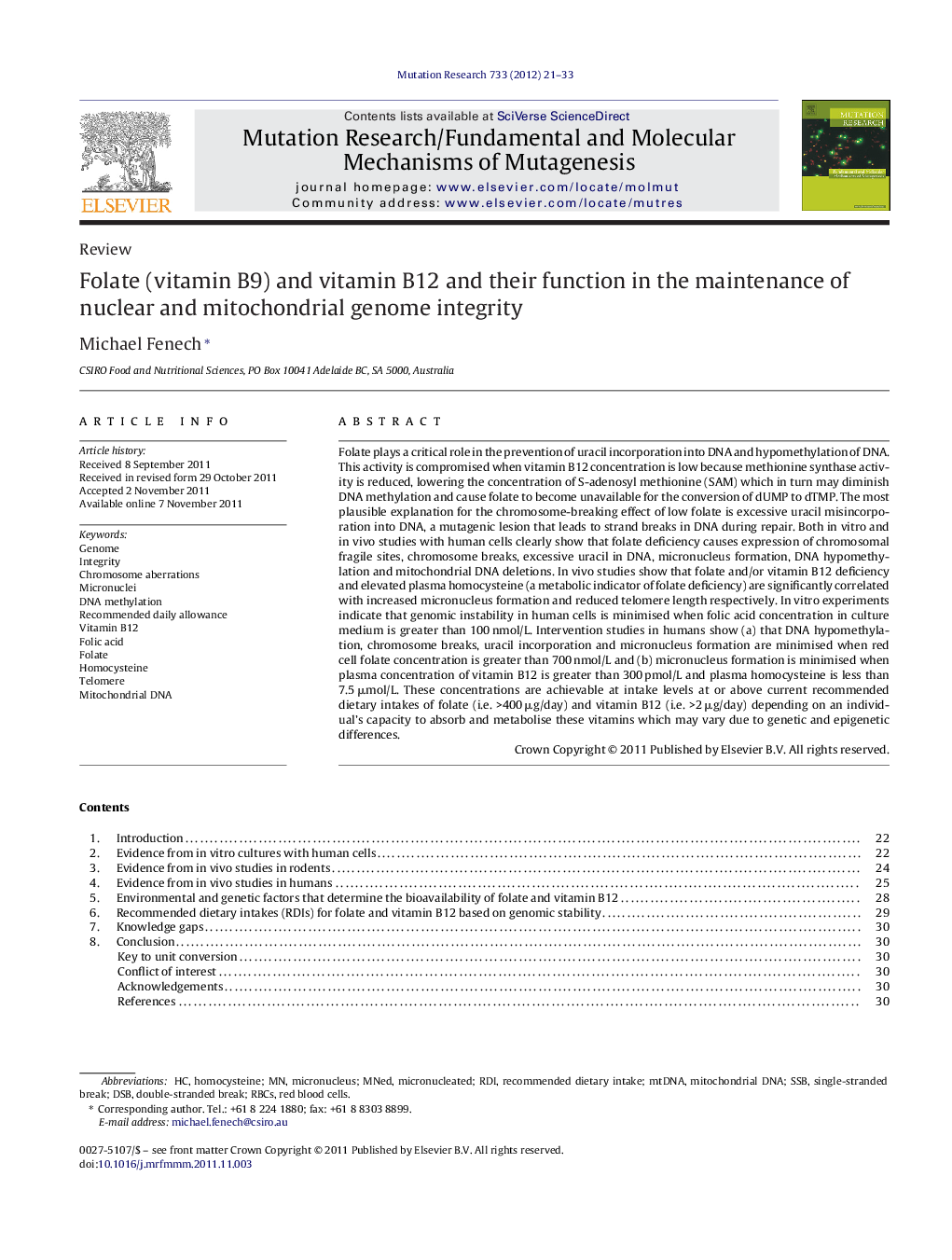| Article ID | Journal | Published Year | Pages | File Type |
|---|---|---|---|---|
| 2146449 | Mutation Research/Fundamental and Molecular Mechanisms of Mutagenesis | 2012 | 13 Pages |
Folate plays a critical role in the prevention of uracil incorporation into DNA and hypomethylation of DNA. This activity is compromised when vitamin B12 concentration is low because methionine synthase activity is reduced, lowering the concentration of S-adenosyl methionine (SAM) which in turn may diminish DNA methylation and cause folate to become unavailable for the conversion of dUMP to dTMP. The most plausible explanation for the chromosome-breaking effect of low folate is excessive uracil misincorporation into DNA, a mutagenic lesion that leads to strand breaks in DNA during repair. Both in vitro and in vivo studies with human cells clearly show that folate deficiency causes expression of chromosomal fragile sites, chromosome breaks, excessive uracil in DNA, micronucleus formation, DNA hypomethylation and mitochondrial DNA deletions. In vivo studies show that folate and/or vitamin B12 deficiency and elevated plasma homocysteine (a metabolic indicator of folate deficiency) are significantly correlated with increased micronucleus formation and reduced telomere length respectively. In vitro experiments indicate that genomic instability in human cells is minimised when folic acid concentration in culture medium is greater than 100 nmol/L. Intervention studies in humans show (a) that DNA hypomethylation, chromosome breaks, uracil incorporation and micronucleus formation are minimised when red cell folate concentration is greater than 700 nmol/L and (b) micronucleus formation is minimised when plasma concentration of vitamin B12 is greater than 300 pmol/L and plasma homocysteine is less than 7.5 μmol/L. These concentrations are achievable at intake levels at or above current recommended dietary intakes of folate (i.e. >400 μg/day) and vitamin B12 (i.e. >2 μg/day) depending on an individual's capacity to absorb and metabolise these vitamins which may vary due to genetic and epigenetic differences.
